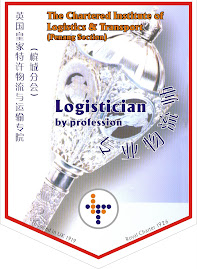
Sea transport or simply shipping is essential to the functioning not just of modern society generally, but of the global economy in particular. For international trade, sea transport remains the most economical mode of transportation that moves all kinds of goods around the world. For example, shipping makes possible the bulk movements of raw materials and primary commodities to sites of manufacturing, and manufactured products to their markets. Moreover, the movement of forms of fuel and energy, especially petroleum and natural gas, is also largely dependent on shipping. Without effective and economical sea transport, therefore, the viability and efficiency of the world economy would be adversely affected. Indeed, economic growth has become closely related to developments and improvements in sea transportation (Tirschwell 2004).
In recent times, developments and advancements in sea transportation have had profound impacts upon international trade. To take an important example, the conversion of merchandising from break-bulk shipping to containerization now permits goods dispatched from their point of origin to reach their intended destination more efficiently, and with much less risk of damage to the goods. There are also clear benefits to exporters and importers when sea transportation costs less while facilitating ‘Just-In-Time’ stock management. Presently, traders can expect relatively safe, easy and economical access to international markets through a combination of deep-sea and short-sea shipping that utilizes container transshipment opportunities.
Within the very broad area of sea transportation, short-sea shipping – also called short-haul sea transport – has become increasingly important because most trunk or deep-sea vessels do not call at small or “off-line” ports. At such ports, the depth may be insufficient to accommodate large vessels, or the cargo amounts are too limited to justify the use of large vessels. Instead, “feeder operators” provide separate short-sea shipping services that mediate between small ports and large vessels. Since small ports greatly outnumber major ports in the world, short-sea transport is an indispensable part of the growth in sea transportation.
In recent times, developments and advancements in sea transportation have had profound impacts upon international trade. To take an important example, the conversion of merchandising from break-bulk shipping to containerization now permits goods dispatched from their point of origin to reach their intended destination more efficiently, and with much less risk of damage to the goods. There are also clear benefits to exporters and importers when sea transportation costs less while facilitating ‘Just-In-Time’ stock management. Presently, traders can expect relatively safe, easy and economical access to international markets through a combination of deep-sea and short-sea shipping that utilizes container transshipment opportunities.
Within the very broad area of sea transportation, short-sea shipping – also called short-haul sea transport – has become increasingly important because most trunk or deep-sea vessels do not call at small or “off-line” ports. At such ports, the depth may be insufficient to accommodate large vessels, or the cargo amounts are too limited to justify the use of large vessels. Instead, “feeder operators” provide separate short-sea shipping services that mediate between small ports and large vessels. Since small ports greatly outnumber major ports in the world, short-sea transport is an indispensable part of the growth in sea transportation.
.jpg)








No comments:
Post a Comment